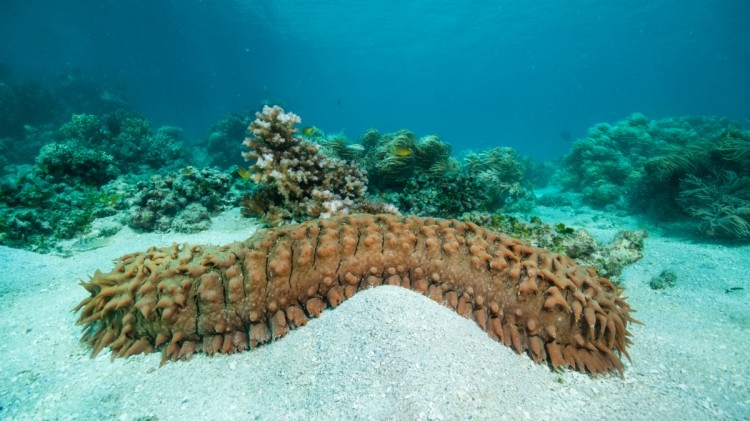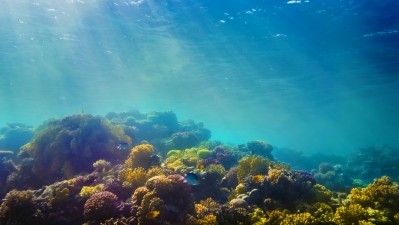Seeking more studies of sea cucumbers to help fulfil functional potential: Indonesian academics

Several species of sea cucumbers — mainly Stichopus hermanni, Thelenota ananas, Thelenota anax, Holothuria fuccogilva and Actinopyga mauritiana — have been used in food and traditional medicine in Asian countries.
Scientific research in recent years has reported on the health benefits of sea cucumbers, including medicinal effects such as wound-healing, tumour prevention / shrinkage, neurological protection, anti-coagulation, anti-microbial protection, and antioxidant properties.
Researchers at the Indonesian Institute of Sciences therefore conducted a review to summarise the major medicinal and health benefits of functional sea cucumbers found in Asia, also discussing the structural significance and potential applications of functional materials derived from sea cucumbers, alongside their nutritional value.
Trends and possibilities
Sea cucumbers contain high value-added compounds such as carotenoids, bioactive peptides, vitamins, minerals, fatty acids, collagens, gelatin, chondroitin sulfates, and amino acids are said to possess therapeutic properties.
They are also low in lipids and toxicity, making them a good candidate for health foods and biomedical products.
Researchers and manufacturers are particularly interested in sulphated polysaccharides, which are present in sea cucumbers and believed to have hypolipidaemic or hypoglycaemic properties, as well as the varying polyunsaturated fatty acid content of different sea cucumber species; the latter making it versatile for various applications in both health foods and medicines, noted the paper.
Another sea cucumber-derived compound that has attracted attention from both scientists and corporations are triterpene glycosides, which have been reported as responsible for the healing, antifungal, cytotoxic, haemolytic and immunomodulatory properties of sea cucumber.
Unmet expectations in unfamiliar territory
The paper states this had led manufacturers to explore more direct therapeutic food and pharmaceutical applications, albeit with little success: to date, there has been no commercially successful product developed using compounds derived from sea cucumber to target specific health and nutrition applications, and very few sea cucumber-based products can be found in either the health food or pharmaceutical market.
The researchers wrote: "As a functional food product, sea cucumber is not up to expectations. Sea cucumber based-functional foods present major challenges in the food industry, as they appear to be a new and unfamiliar territory for product developers in marketing and developing business strategies."
They added that translating scientific advances and nutritional innovations into consumer product development was an expensive and complicated process, as there was not enough scientific backing to support the development, marketing and regulation of sea cucumber-derived compounds in functional food form.
Industry players must not only understand the science and health benefits of sea cucumbers better, but their consumers as well.
The researchers concluded: "Sea cucumbers showed high potential as natural ingredients in foods as well as pharmaceuticals; hence, these marine organisms can be used maximally in the research areas of new drug development.
"However, understanding the specific structures and bioactivities relationship of marine algal fibres is still a great challenge. There is considerable gap in this area compared with the isolation rate of new compounds.
"Adequate clinical trials are needed in drug development of sea cucumber-derived bioactive materials. More importantly, once their biological activities and health benefit effects are demonstrated, new aspects need to be addressed, such as the culture of sea cucumber, production of functional ingredients on an industrial scale, extraction and purification of functional ingredients, and scientifically demonstrated health properties."
Source: Journal of Traditional and Complementary Medicine
https://dx.doi.org/10.1016%2Fj.jtcme.2017.06.007
"Medicinal and health benefit effects of functional sea cucumbers"
Authors: Ratih Pangestuti, Zainal Arifin

















